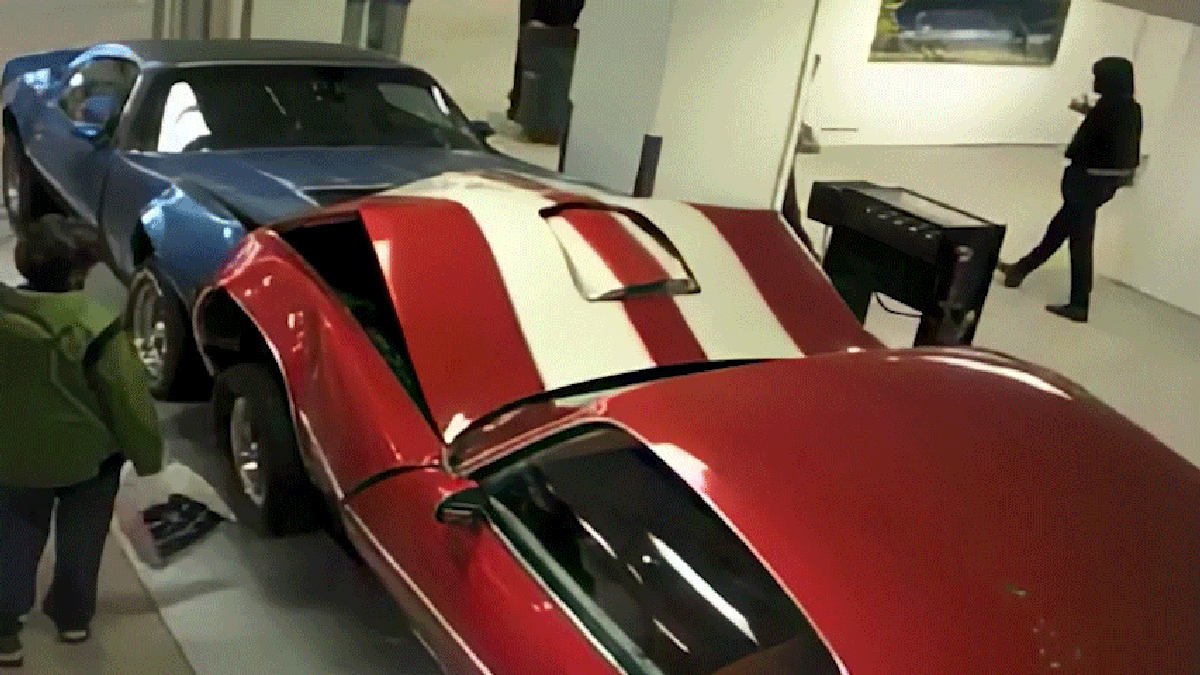For some people on the internet, the American muscle car died with the launch of the Mustang Mach-E, for others it’ll come when the Dodge Charger Daytona roars onto our streets in the coming months. For artist Jonathan Schipper it actually came almost a decade ago when he premiered this installation that crashed two American classics together at ridiculously slow speeds.
The art installation was called Slow-Motion Car Crash: Slow Inevitable Death Of American Muscle and it followed a similar long-running piece that saw a VW Golf crash into a wall. For the piece, Schipper rigged up two Pontiac Firebirds so that they would crash head-on into one another at unbelievably slow speeds.
The two cars smashed together at a rate of just one-inch every day, meaning that it was so slow you couldn’t spot the movement with your own eyes. As they crashed into one another, the front ends of each car buckle under the forces just as they would at high speeds.
The piece was first unveiled in Chicago, and at its launch Schipper had this to say about Slow-Motion Car Crash:
In the Slow-Motion Car Crash, the speed and danger are distilled out. The audience is free to touch and examine the object and event in detail. The speed has been removed, it still sits like an erased De Kooning, ever present in the work. The energy still transforms the metal and glass, but at a tectonic pace. The molecules individually push one another and in mass, push order toward entropy.
We are given not only a front-row seat but something even better – we are given a lens that expands time. What normally happens in just a moment is now almost too slow to comprehend. We see an object in motion that appears to be static. We have the leisure to see the crash from all angles. The drama and danger are gone, and we are left with a three-dimensional time machine.
Whether you think it’s a three-dimensional time machine, or a great analogy for the demise of the American muscle car, there’s no denying that the piece does make for some ridiculously compelling viewing.
The piece premiered way back in 2009, but can still be seen around the world in various guises regularly. Most recently, it went on display at the Arsenal Contemporary Art exhibition, where it smashed two vintage Mercedes models together.

